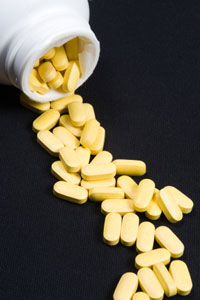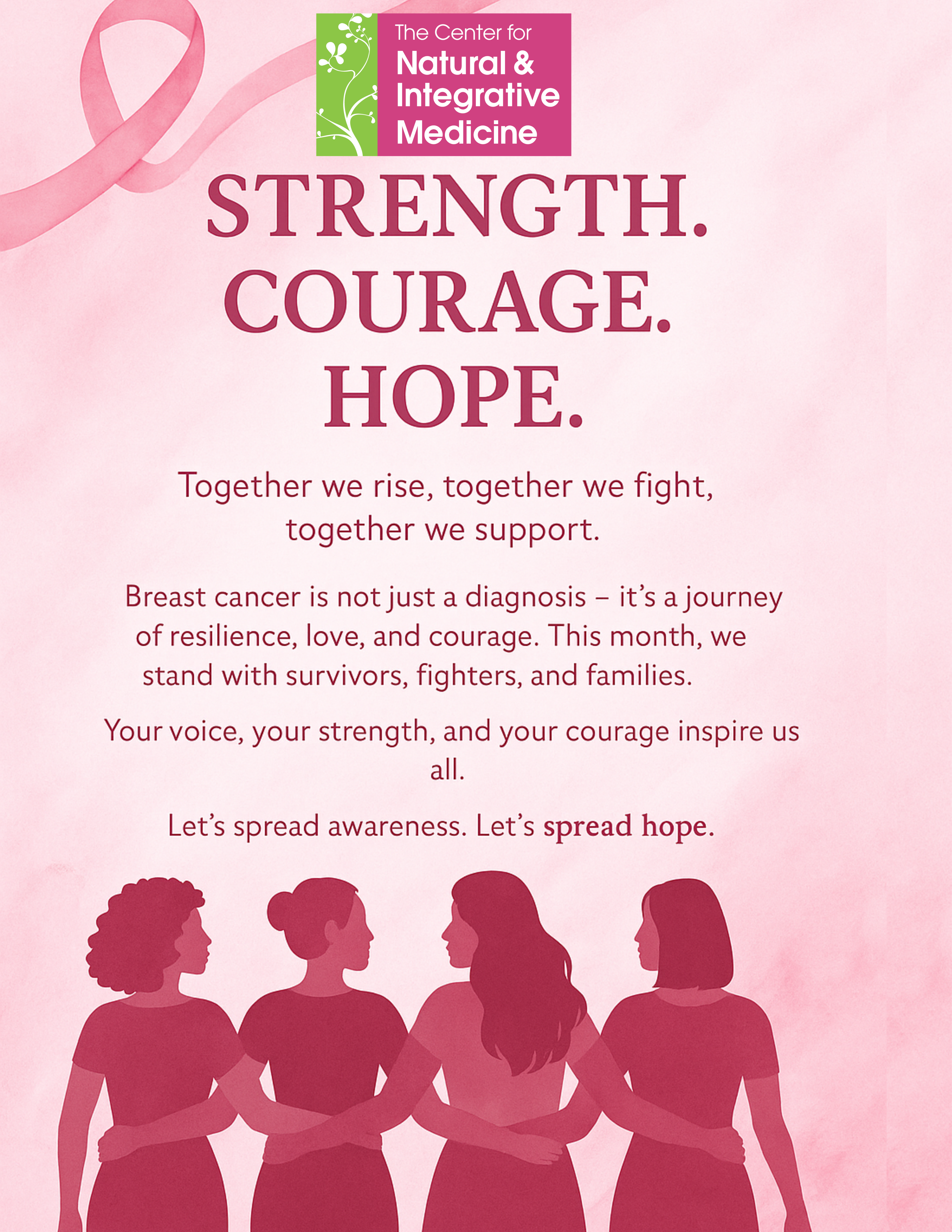 Hormone Replacement
Hormone Replacement
Are you feeling moody, depressed, irritable, or have brain fog? Are you losing hair or libido or feeling hot or aged? Are you finding it difficult to lose weight or perhaps having acne? These are some of the signs of having a hormonal imbalance. One of the hallmarks of getting older is a decline in hormone levels. Production of estrogen, progesterone, testosterone, thyroid, DHEA, melatonin, human growth hormone, and other hormones tapers off after we reach our 20s and 30s. Age-related hormonal deficiencies contribute to the signs and symptoms of aging. That’s why bioidentical hormones—which are identical to those produced in the human body—are a cornerstone therapy at our center.
What exactly are hormones? And is replacing them safe? Is a synthetic hormone any different from a bio-identical one? Is hormonal balance really that important to wellness? And if it is, what is the best way to achieve it? Recent research and studies suggest that balancing hormones (using bio-identical hormones) may hold the key to unlocking long-term health and wellness.
Many of our physiological processes are regulated and mediated by a complicated, interconnected network of hormonal signaling pathways. If any of these become imbalanced due to age, disease, or medical treatments, hormone replacement therapies (HRT) are sometimes recommended to help rebalance body chemistry, eliminating symptoms or reducing the risk of developing complications.
Synthetic vs Natural Hormone Replacement
Synthetic and pharmaceutical hormones are administered to rectify any deficiencies by traditional hormone treatment. Since the chemical composition of conventional hormones is different from the hormones produced naturally in the human body, they remain structurally foreign to the human body. This is the major cause of several undesirable side effects.
Bio-identical hormones are synthesized such that they are structurally identical to their natural counterparts. Thus, these hormones offer the purity of manufactured hormones with the added benefits of being identical to what the body would normally produce. For these reasons, bio-identical hormones potentially offer the safest, most natural options for those undergoing hormone replacement therapies.
Premarin is a non-bio-identical hormone which is obtained from the urine of pregnant horses. Provera is also an example of synthetic hormone. It causes bone loss or osteoporosis. Their combination called Prempro has been marked with a black-box warning for causing serious health risks. Support to this step has been found from the reports of the Women’s Health Initiative (WHI) as well.
Our Integrative Approach
- Each patient is unique and therefore we offer tailor-made treatments, working closely with compounding pharmacies to give you an individualized prescription.
- Mind-Body-Spirit whole – Hormones affect all aspects of life. So, the treatment must be extended to and coordinated with the complete physiology and psychology of a person.
- Empowerment and Partnership – The patient is empowered with the confidence to heal himself or herself and in the process he or she becomes the partner of the practitioner.
- Safety Choice – As long as the processes are acceptable, you are offered choices and further modifications.
- Best practices and practitioners – The practitioners at The Center for Natural Integrative Medicine are highly experienced and first rated in their field.
Diseases Treated Using Bio-Identical Hormones
Different kinds of diseases may occur when an imbalance of necessary hormones prevails in the human body. For example, an imbalance in estrogenic hormones may cause strokes, osteoporosis, vaginal dryness, atrophy, and Alzheimer’s disease. A hormonal imbalance in Progesterone may lead to uterine cancer, breast cancer, and ovarian cysts.
Hormones perform five different types of activities in human body
1. Growth
2. Repair
3. Sexual reproduction
4. Digestion
5. Homeostasis
Bio-identical hormones, when applied in the proper way and dosage, may also delay the aging process or may prevent early aging signs. There following are some major diseases associated with imbalance in the hormones.
Diabetes
Replacement of the hormone insulin has been a mainstay of diabetes treatment since its therapeutic benefit was discovered in the 1920’s. Insulin is normally secreted by the pancreas to help balance blood sugar, which increases upon ingestion and breakdown of foods. The insulin attaches to cells and promotes uptake of sugar from the blood to fuel various metabolic processes. Mediation of this process also keeps the blood clear of excess sugars, which can potentially cause other severe health complications. Diabetes typically results from a lack of insulin secretion from the pancreas or insulin resistance of the cell receptors. For most diabetics, supplementation of insulin is a routine part of treating and managing their condition.
Menopause
This is another common condition for which hormone replacement is considered. During menopause, ovarian function ceases, depriving the body of estrogen and progesterone, both of which are vital for helping balance many aspects of physical, mental, and sexual health. Estrogen replacement therapies have been part of menopause treatments since the 1930’s and are intended to alleviate many of the common symptoms, such as hot flashes, mood disturbances, and the atrophy of uterine and vaginal tissues. In addition, the supplementation of estrogen and progesterone can help ward off osteoporosis and many types of cancers that appear to strike more frequently due to the physiological changes that occur during menopause. These treatments not only extend a woman’s life, but improve the quality of her health and well-being during the later years.
Low level hormone replacement can also be quite helpful in reducing the symptoms of premenstrual syndrome (PMS). As progesterone and estrogen levels fluctuate during the menstrual cycle, some women experience anxiety, depression, mood swings, headache, acne, breast tenderness, and other discomforts. Many of these symptoms can be relieved through nutritional modification, but should dietary changes prove ineffective, hormonal supplements may be considered.
In men, levels of the hormone testosterone naturally begin to decline after age forty. Unlike with menopause in women, production of this sex hormone does continue, but some men experience noticeable changes in their more masculine traits. Beard growth, muscle tone, and libido may all become reduced. The perceived loss of virility, as well as reduction in testosterone, can lead to anxiety, self-consciousness, and other emotional symptoms.
Hypothyroidism and Hyperthyoidism
The thyroid gland releases hormones that control the speed and efficiency of metabolism. An overactive thyroid (hyperthyroidism) that secretes too many hormones can put the body in overdrive, causing hyperactivity, increased heart rate, and shortness of breath. This state can deplete the body’s energy sources more quickly than a person can replenish them, leading to extreme weight loss, fatigue, and other chronic conditions. Conversely, an underactive thyroid (hypothyroidism) results in lethargy, low blood pressure, weight gain, and sensitivity to cold. Treatment of low thyroid hormone conditions (hypothyroidism, or to compensate following aggressive treatment of hyperthyroidism) is very effectively handled through replacement with natural thyroid hormones.
Adrenal Fatigue
Adrenal disorders are also candidates for hormone replacement. The adrenal gland is mainly involved in the secretion of hormones related to the body’s stress response, such as cortisol and adrenaline. Insufficiencies of these hormones may be due to medical conditions such as Addison’s disease, autoimmune adrenalitis, or adrenal tumors. More often, however, the causes of adrenal insufficiency are unknown. Some cases are thought to be caused by a syndrome known as adrenal fatigue, in which the adrenal gland has become worn out due to chronic stress, causing lower levels of hormone to be released. In all of these cases, adrenal hormone replacement can be helpful for alleviating the many symptoms, which may include dizziness, nausea, weakness, fatigue, low blood pressure, and muscle pains.
 Progesterone (Bio-Identical)
Progesterone (Bio-Identical)
Progesterone is secreted by the adrenal glands, the ovaries, the brain, and in time of pregnancy, in the placenta.It is used in nature to balance the effects of estrogen. Natural progesterone allows women to feel much better than they do on any of the synthetic progestins and it is less likely to cause the side effects of synthetic products such as bloating, swelling, breast tenderness, bleeding, irritability and depression.
Studies show Micronized Bio-identical Progesterone May Protect Against:
- Uterine Cancer
- Breast Cancer
- Osteoporosis
- Fibrocystic disease
- Ovarian Cysts
Estrogen (Bio-Identical)
Estrogen refers to Estrone (E1), Estradiol (E2) and Estriol (E3). They are the three Estrogenic hormones secreted by the ovary.
There are three basic forms of estrogen: Estradiol 10-20%, estrone 05-20%, and estriol 60-80%. Of the three, estradiol is the most physiologically and biologically active. Bio-identical Hormone Replacement is comprised of either two (Bi-est) Estradiol and Estriol or all three estrogens (Tri-est) using a bio-identical formula that your body recognizes as it would it’s own. Topical Estriol face cream (0.6% to 1.5%) is used to treat Hirsutism, excess facial hair around lip, jaw and neck in women.
Studies show micronized bio-identical estrogens may protect against:
- Strokes
- Osteoporosis (increases osteoclasts)
- Alzheimer’s disease
- Urinary tract atrophy
- Vaginal dryness atrophy
- Poor body fat distribution
Compounded Thyroid (Bio-Identical)
- The thyroid gland is considered “Metabolism Central”. This butterfly-shaped gland effects energy regulation in every cell, organ and tissue in the body. It regulates temperature, metabolism, and cerebral function. It also increases carbohydrate, lipids, and proteins breakdown resulting in weight loss as well as lower cholesterol.
- Thyroxine T-4 is actually a prohormone and a reservoir of triiodothyronine T-3.
- Triiodothyronine is the most powerful thyroid hormone affecting almost all bodily mechanisms.
- Compounded thyroid medication supplements T-3 as well as T-4, corrects deficiencies of Thyroid hormone and return you to optimal levels.
Thyroid hormone is known to protect against:
- Fatigue
- Low body temperatures
- Colds and other viruses
- Weight gain
- Dry skin
- Headaches
- Depression and mood swings
Pregnenolone (Bio-Identical)
Pregnenolone is a hormone that keeps our brains working at peak capacity. Research has shown that pregnenolone improves memory, mental function, concentration and overall well-being. Pregnenolone should be prescribed in a sustained release micronized form to assure adequate absorptions and more importantly assures a pure grade supplementation devoid of any contaminants.
Pregnenolone is a precursor to other hormones
- Improves cellular repair
- Enhances memory and learning
- reduced PMS symptoms
- Boosts immune function
- Protects cerebral function
- Protects against neuronal injury
- Can be used to treat autoimmune disorders
DHEA (Bio-Identical)
Dehydroepiandrosterone, or DHEA, is a natural steroid prohormone. It is produced from cholesterol by the adrenal glands, testes in men or ovaries in women, and the brain. In both men and women, the body’s production of DHEA increases dramatically before puberty. DHEA levels usually peak when we’re in our mid-20s, and decreases with age. Normal levels of DHEA are 200 to 400 micrograms per deciliter (mcg/dl) in women, and 500 to 700 mcg/dl in men. By the time we hit our 40th birthday, most of us have DHEA levels below 200.
DHEA is known as a natural antioxidant that may:
- Restore immunity
- Improve memory
- Improve energy
- Slow the aging process
- Positively affect depression and anxiety
- Improve psychological and physical aspects of sexuality
Testosterone for Men (Bio-Identical)
Testosterone is secreted mainly from the testes of males and is primarily considered the male hormone. As this declines with age, there are health and appearance problems that accompany this loss. A “natural” form of testosterone is simply called micronized and may be prescribed in topical or oral formulation.
Studies report men may experience:
- Increased bone density, formation, minerals
- Increased energy
- Improvement in sexual function
- Decreased body fat
- Increased muscle strength
- Decreased heart disease
Testosterone for Women (Bio-Identical)
Healthy women naturally produce small amounts in the ovaries. It helps control a women’s libido and also may be known to enhance the functions of estrogen.
Studies report women adding prescription ordered testosterone may experience:
- Enhancement of sexual drive
- Relief of menopausal symptoms
- Restoration of energy
- Strengthening of bone


